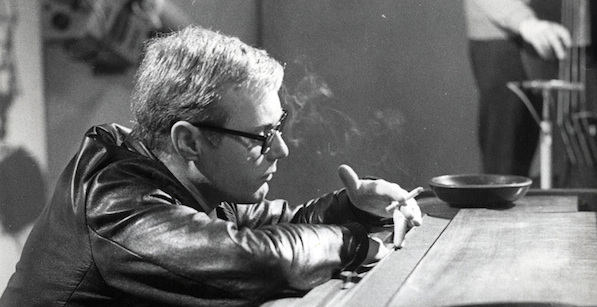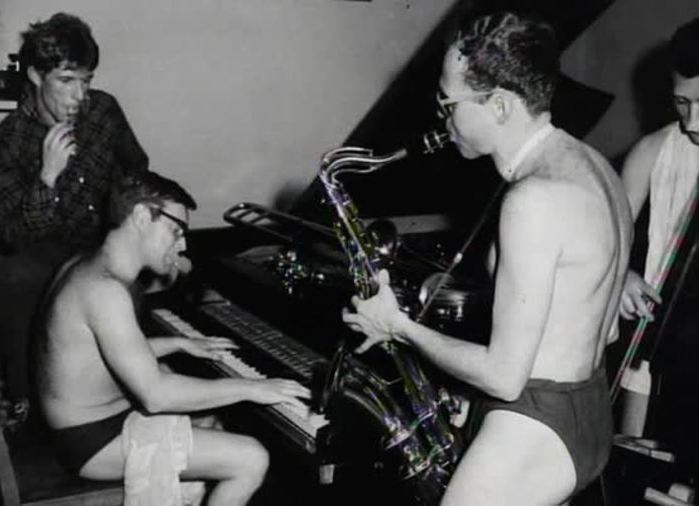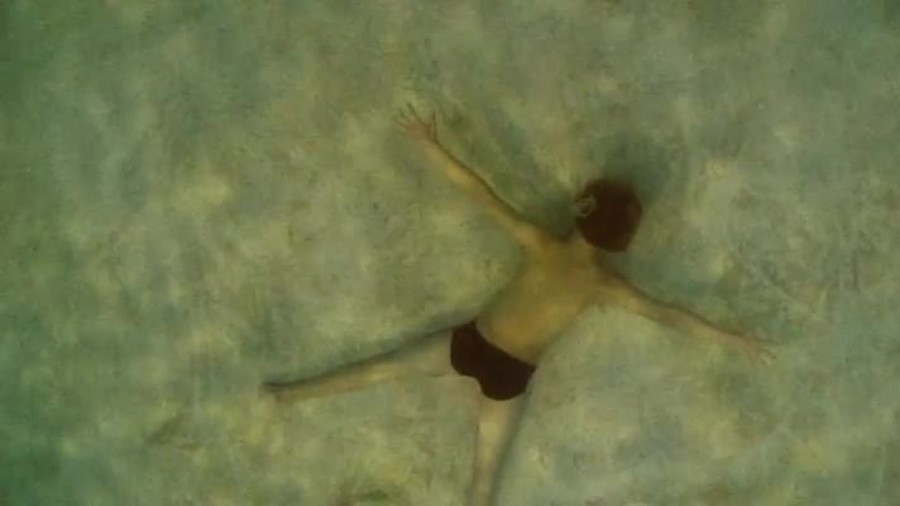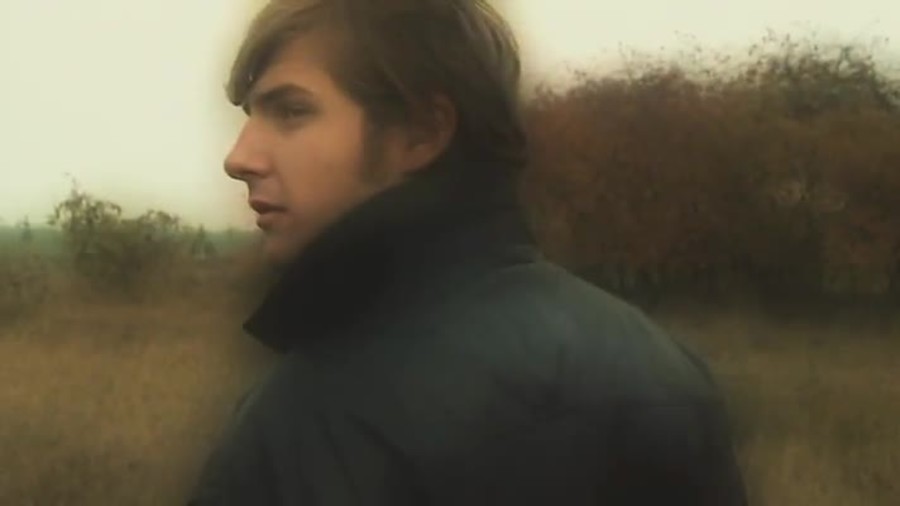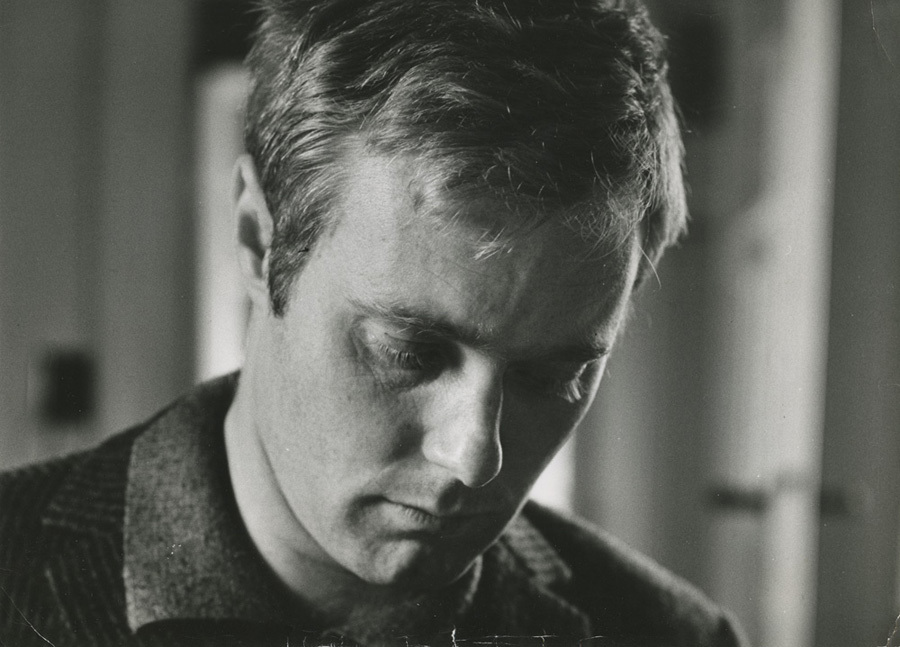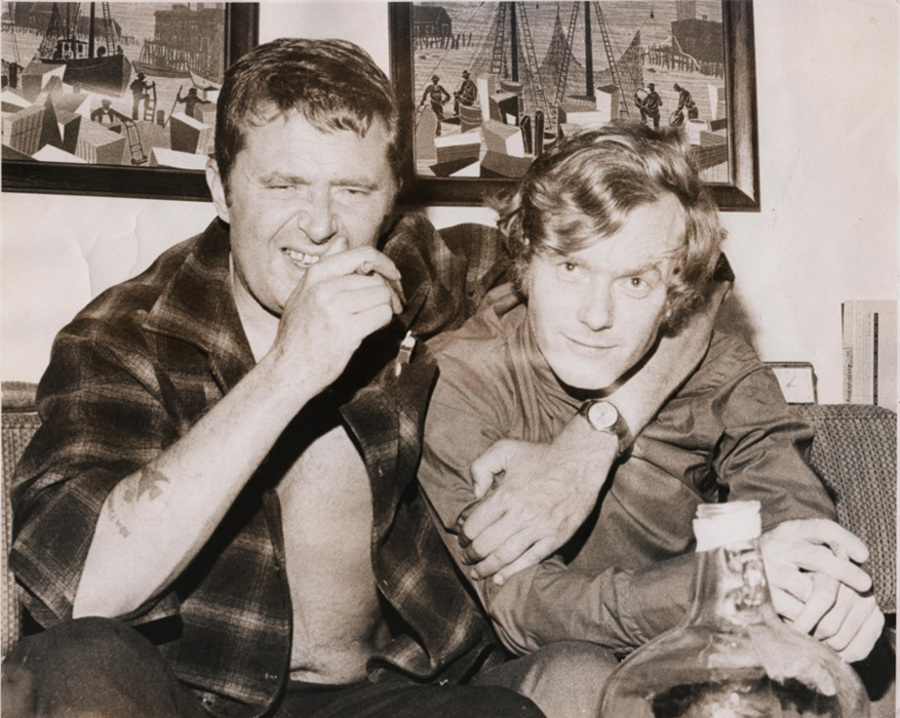A gentle soul with a towering musical gift, Polish jazz musician Krzysztof Komeda remains tragically unknown outside of his native Poland and a small circle of jazz and film score aficionados. Born Krzysztof Trzciński in 1931 he originally trained as a medical doctor and used the stage name “Komeda” to fly under the radar of Communist authorities, who no doubt would not have approved of the Ear, Nose and Throat Specialist dabbling in American Jazz in his free time. Reportedly his stage-name was inspired by a childhood memory of playing soldier and misspelling “Komenda” (which is Polish for “Headquarters”), as “Komeda.”
From an early age Komeda possessed a musical gift that was supported and nurtured by his parents and he most likely would have continued on a musical path had World War II not intervened. Nonetheless, in tandem with his medical career he continued to pursue music on the side and after successful appearances in the Sopot Jazz Festival in 1956 as well as a well-received Jazz & Poetry series, his musical career finally overtook his medical career.
A 2010 documentary Komeda: A Soundtrack for a Life sheds some much needed light on this neglected talent. With insight from filmmaking collaborators, bandmates and school chums, as well as delicious mid-sixties clips of Komeda in performance, this fifty-two-minute primer will leave you wanting to explore his output in greater depth.
Early on, Komeda’s music was a canny blend of Cool Jazz à la Gerry Mulligan or the MJQ blended with Slavic folk sensibilities. As jazz music progressed through the sixties he began to incorporate elements of the Avant-Garde, taking particular inspiration from John Coltrane (his epic twenty-seven-minute “Nighttime, Daytime Requiem” was written in response to Coltrane’s death). His 1965 recording “Astigmatic” is considered one of the best jazz albums of the mid-sixties, from Europe or anywhere else. However, it is his work for film that has perhaps made the biggest impression and continues to inspire via repeated film screenings, even as his name remains relatively unknown.
Komeda’s break into film came when Roman Polański, himself a jazz fan and a Komeda fan in particular, approached him to score his short film Two Men and a Wardrobe. This led to his scoring Polanski’s feature debut, Knife in the Water of which two compositions, “Crazy Girl” and “Ballad for Bernt” (Bernt being Swedish saxophonist Bernt Rosengren), are as close to jazz standards as you can get. The image of the sailboat cruising along the water to Komeda’s music in Knife in the Water proved irresistible and both film and score were a big international hit. The floodgates had officially opened for Komeda as a film composer (he would score over thirty-five films prior to his death).
In addition to his collaborations with Polanski, Komeda forged close relationships with directors Henning Carlsen (Hunger), Jerzy Skolimowski (Barrier and Le Depart) and Andrzej Wajda (Innocent Sorcerers). For Wajda’s Innocent Sorcerers Komeda and Polanski have small acting roles as members of the protagonist’s jazz band, the protagonist himself being loosely based on Komeda: a medical doctor moonlighting as a jazz musician. Komeda’s score for Carlsen’s Hunger plays like a precursor to his underscore for Rosemary’s Baby.
As his film scoring duties took more and more of his time, his jazz recordings were fewer and farther between. One exception was the exceptional and exceptionally depressing jazz and poetry recording “Meine süsse europaische Heimat,” which featured Polish poetry about the Holocaust spoken in German, with Komeda’s working quintet providing the musical backing. You don’t have to understand German to find this to be a very moving piece, and the record’s producer, German Jazz Impresario Joachim Berendt (who appears in Komeda: A Soundtrack for a Life, interviewing the composer on German TV) came up with the multi-national concept in order to provide Komeda greater exposure.
As Polanski’s career took off, and Komeda’s standing in Poland allowed him greater freedom of travel, he was able to score two more of the director’s classic early works, both filmed in the UK, Cul-de-Sac which features a wonderfully menacing yet humorous score for the pitch-black comedy about thugs terrorizing Donald Pleasence and Françoise Dorléac, and The Fearless Vampire Killers, the film that introduced Polanski to Sharon Tate.
Komeda would return to Poland to record his last strictly jazz recordings in 1967. They would display the massive creative growth Komeda had experienced in less than a decade. Working with a sextet of Polish Jazz heavyweights including Zbigniew Namysłowski, Michał Urbaniak, Tomasz Stańko, Roman Dyląg and Rune Carlsson, the compositions included the aforementioned “Nightime, Daytime Requiem” “Don Kichot” (“The Knife,” from the Heimat jazz and poetry album), and “Po katastrofie” (“After the Catastrophe”), a particularly moving piece—both somber and swinging at the same time. Shortly after wrapping these recordings, Hollywood officially came calling and at Roman Polanski’s behest he settled in Los Angeles to begin writing the score for Rosemary’s Baby.
Rosemary’s Baby afforded the composer a larger budget, the full availability of Los Angeles’ recording scene and its vast musical resources (trumpeter Don Ellis, for example, appears on the recording). He was by all accounts in heaven in Los Angeles, if a little homesick. He had left behind a dysfunctional marriage, and with the pending success of Rosemary’s Baby, Komeda looked poised to have a long career ahead of him in America. After a night of drunken carousing with a fellow Polish expatriate, however, it all came to an end.
As Komeda: A Soundtrack for Life goes into greater detail, Komeda was with Polish poet Marek Hłasko when he fell and hit his head. The gregarious Hłasko picked him up, lost his balance and the two tumbled down more stairs exacerbating Komeda’s head injuries. Not realizing the direness of his condition, Komeda neglected seeing a doctor until it was too late (another example of doctors making the worst patients), and slipped into a coma. Against some of his friends’ wishes, his estranged wife Zofia came to America to bring him back to Poland, where as one participant in the documentary pungently notes, “you could die for free.” He would quietly pass away on April 23, 1969 in Warsaw at the age of thirty-seven.

